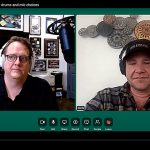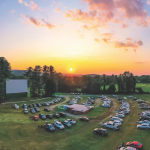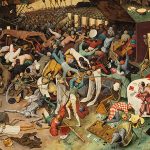I was sitting in Nashville airport one day in July, waiting for weather to clear at LaGuardia. My gate shared a seating area with the adjacent gate, where delayed Los Angeles-bound passengers were also waiting for air traffic control to give their flight the all-clear. Someone tapped me on the shoulder and I turned around to see Bruce Bouton, pedal steel player extraordinaire, standing there surrounded by other top studio Nashville names, including guitarist Jerry McPherson, whose work appears on tons of records for artists like Amy Grant and Toby Keith, and keyboardist Jimmy Nichols, who has equally impressive credits. What was more surprising than finding this concentration of studio talent together outside of a recording studio was that they were all part of singer Reba McEntire's touring band, headed out to play the last date of her 2005 tour in Paso Robles, Calif. The next night, I was sitting in the fourth row at the Pompano Beach Amphitheater in south Florida, watching Lyle Lovett and His Large Band, which, on this year's tour, was made that much larger by the inclusion of the greatest SoCal rock battery of all time–Lee Sklar on bass and Russ Kunkel on drums (with all due respect to the Wrecking Crew). What seemed quirky and interesting in Nashville suddenly became a trend, and thus, grist for a column.
Studio musicians exist in a unique environment, one diametrically opposed to what road players are used to–in the studio, you can stop time and do it over; on the road, the pressure is constantly there to get it right on the only chance on you'll ever get in that town. On the other hand, in the studio, the implicit demand is that you get it right fast enough to get out on schedule with music you likely never heard before you walked through the door that day. The road warrior has the benefit of growing intimacy with the material night after night.
You could write a book about the contrasting personalities between studio cats and road dogs, but the people who are dealing with it daily are the FOH and monitor mixers. As hit artists extend their careers into ages we used to regard as over the hill, and as the digital paradigm of music recording continues to erode the market economics that once sustained the careers of dedicated studio musicians, mixers are going to encounter more studio players on their stages.
Bouton has played on records for artists including Garth Brooks, Faith Hill and Shania Twain, but he had never done any significant touring, and no live playing since he did short stints with Foster & Lloyd in 1991. What struck him when he went out the first time in McEntire's band was the difference between studio "cans" and personal monitoring. "It's like being in the studio with those things on, and it took me a while to get used to them," he says. "I had to learn to trust the monitor mixer, because while I can find my way around a headphone mix and know what to ask for to get what I want, you can't just stop and do that onstage. You have to learn the signals." He also had to get used to applying his own effects, such as reverb and delay.
The learning curve was also there for Robert "Koz" Kosloskie, the monitor engineer for the tour and staffer at Clair Bros.' Nashville office. "The studio guys are totally amazed at what you do with personal monitors," he says, with just a touch of Back to the Future smugness. "I imagine it also takes a while for the notion that you can't stop and redo a part to sink in after so many years of being able to on sessions."
Other issues that come with this dynamic include the need to take the time to even out all of the player's presets–"In the studio, each preset is a song unrelated to the other ones, but on stage you need to know they're all consistent in level," says Koz–and the fact that studio players by nature tend to have shorter attention spans, an evolutionary characteristic that allows them to be constantly fresh on new material. "You can hear them starting to get a little bored towards the end," he says. "One of the things that makes a strong road band player is the ability to tackle the songs fresh every night."
Jeff Laughinghouse mixed monitors for Wynonna last year when session guitarist Bob Britt played with her. Laughinghouse was relieved when he saw that Britt had created a completely separate amplifier rig for the road–with very predictable parameters. But Britt's studio pedigree quickly became apparent when the guitarist walked over to the Yamaha PM1D console Laughinghouse was running and dialed in his own monitor mix. "That's not something you see every day on the road," he says.
This is one of the quirky, endlessly interesting ways in which economics affects the sound business. It's no secret that major recording studios have been closing. The inference is that the musicians who manned them have to go somewhere. Now we know where "somewhere" is.



